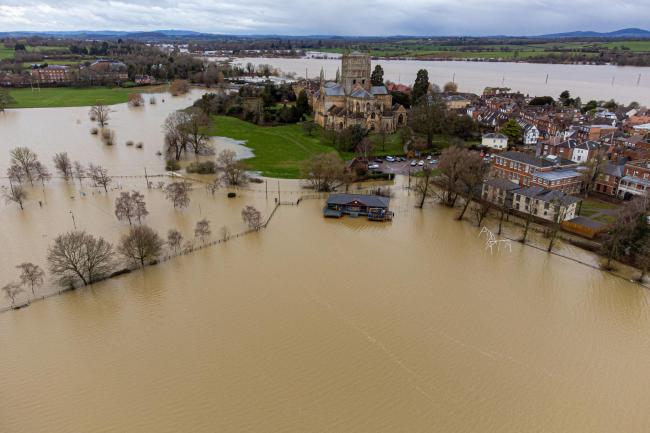New study has suggested that damage caused by floods in the UK can be reduced to a large extent if countries meet their internationally agreed climate targets, failure of which would not only see the average global temperature reaches 3.3C above pre-industrial levels, but could also see the annual cost to properties and businesses rise by more than a fifth.
Damage levels can be reined in at just 5% above historical levels if countries around the world honour the pledges they made at the UN climate conference Cop26 in Glasgow, the researchers from the University of Bristol and flood modelling firm Fathom found when they assessed the UK’s flood risk using the latest Met Office climate projections.
The modelling showed countries such as the UK which also made further net zero commitments will have to meet those as well to prevent costs from flood damage rising to between 13% and 23%.
“For the first time this flood model gives us a more accurate and detailed picture of the impact of climate change on the risk of flooding in the future across the UK.
“The results are a timely warning to the country’s political leaders and business sector that global commitments to significantly reduce carbon emissions must be taken very seriously, and ultimately take effect, in order to mitigate increased losses due to flooding,” Professor Paul Bates, lead author of the study and chairman of Fathom, was quoted as saying.
Read also: DWM aims to promote inclusive climate action through financial inclusion
The researchers said official maps, used to inform flood defence investment policy and long-term risk planning, lack transparency and are not peer-reviewed and described them as “insufficiently validated”, with the methods used to create them “clouded in secrecy” and unrepeatable, while calls for proper peer review of UK national flood risk assessments have been neglected.
South-east England, South Wales, north-west England and central Scotland are among the regions that face the greatest risk, while densely populated cities such as London, Cardiff, Manchester, Glasgow and Edinburgh could see possible damage increases of more than 25%.
Published in the journal Natural Hazards and Earth System Sciences, the study was based on actual river flow, rainfall and tide-surge observations as well as climate model projections that matched with data on flood losses from the Association of British Insurers.
“This study, which harnesses new data and the very latest modelling techniques, validates Fathom’s UK Flood Map and has given a new level of insight into the impact of climate change on flooding in future.
“The modelling provides clear evidence that flood risk needs to be a bigger international priority and that current governance doesn’t go far enough,” Co-author Dr Oliver Wing was quoted as saying.
Story was adapted from the Independent.
